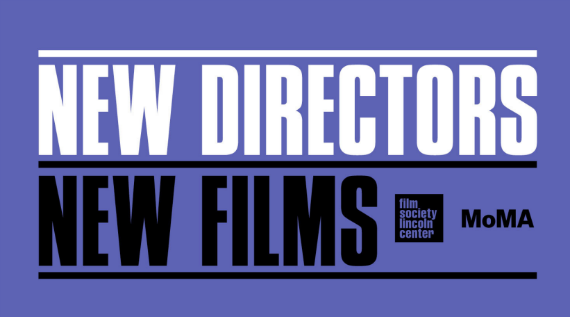Following the BAFTAs last week, where I AM NOT YOUR NEGRO took home the prize for Best Documentary, it seems the every growing sprawl of awards season is finally about to reach its climactic conclusion with the 90th annual Academy Awards ceremony at the Dolby Theatre in Hollywood. In The New York Times, Cara Buckley dished a wild yarn on how Russia has been leading a smear campaign against two doc Oscar nominees, noting LAST MEN IN ALEPPO as its major target, “In the Russian media, Mr. Fayyad has been accused of being a Western-funded propagandist whose film is a thinly disguised ‘Al-Qaeda promotional vehicle.’ And, in what might catch members of the academy’s documentary branch by surprise, the film’s Oscar nomination was, according to Russia Insider, clear evidence that ‘the Hollywood celebrity industry is now an integral part of the U.S. state’s propaganda machine.'” Not only is the film being smeared, but the US has officially rejected the visas of the film’s producer, Kareem Abeed, and one of its subjects, White Helmets co-founder Mahmoud Al-Hattar, making it impossible for them to attend the ceremony, reports Beatrice Verhoeven at The Wrap. Meanwhile, the International Documentary Association and the Academy itself have published statements in support of the team behind LAST MEN IN ALEPPO.
In the latest episode of a relatively new documentary podcast called The Fog of Truth, produced by Christopher Llewellyn Reed, Summre Garber and Bart Weiss, the trio discuss the Oscar nominees and a whole host of previous nominees. Other Oscar coverage came in the form of interviews by RogerEbert.com’s Matt Fagerholm with ABACUS: SMALL ENOUGH TO JAIL director Steve James and EDITH+EDDIE director Laura Checkoway, another interview with Checkoway by IDA’s Akiva Gottlieb, a profile on James in The Los Angeles Times by Lewis Beale, an interview with STRONG ISLAND director Yance Ford with Cara Buckley in The New York Times, and a feature in The Guardian by Charlie Phillips on the fact that the “most innovative factual films are often under 40 minutes long – and the best of this growing genre are easy to find online” – including EDITH+EDDIE.
Tomorrow, we here at Stranger Than Fiction have the rare opportunity to preview two episodes of FLINT TOWN on the big screen, followed by a conversation with the filmmakers (Zackary Canepari, Drea Cooper and Jessica Dimmock), a few days before the series launches on Netflix. Tickets for this special event are still available here.
Continue reading…
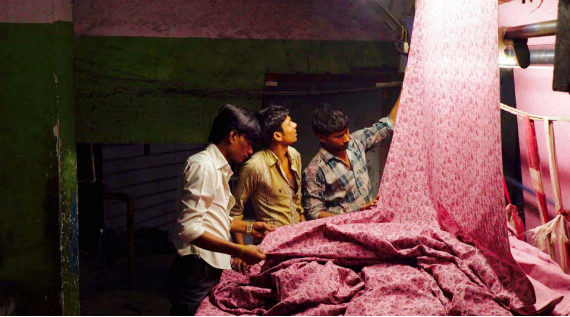
Still from MACHINES, directed by Rahul Jain. Courtesy of Autlook Films.
“In these times of fake news and alternative facts, we need the voices of documentarians more than ever to hold the powerful to account and explore the nuance of the world that cable news squawkers deny. And, just perhaps, to help us make our world a little more compassionate.” On a day like today, in times likes these, it is heartening to read such words of fervent inspiration. Writing an impassioned, must-read guest column last week in The Hollywood Reporter, Simon Kilmurry, executive director of the International Documentary Association, wrote a spirited call to arms for the documentary filmmaking community in which he, and all of us, seek hope, inspiration and truth in non-fiction cinematic storytelling.
Tomorrow at the IFC Center, our winter season continues with a special screening of the truly stranger than fiction tale of TICKLED, co-presented by HBO Documentary Films. The film’s co-director David Farrier and film lawyer Cam Stracher will both be on hand for a live Q&A following the film. Tickets are still available here.
Continue reading…
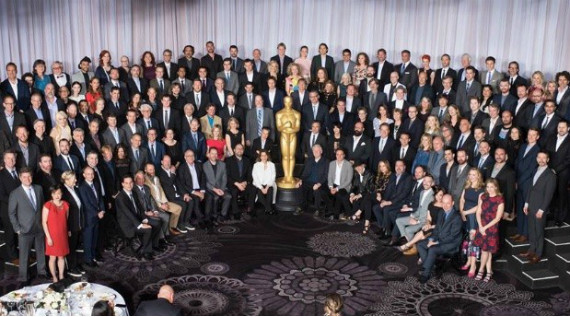
Oscar Class of '16 (Photo credit: Image Group LA / ©A.M.P.A.S.)
In a week relatively quiet on the doc front, the topic of diversity and gender inequality within the filmmaking community as a whole once again reared its head. A pair of pieces found in Filmmaker Magazine via Esther B. Robinson (The Data Says, “We Have a Problem”) and doc filmmaker Katy Chevigny (Can She Pull It Off?) led the charge. Chevingny writes, “Just last month, in January, 2016, the Center for the Study of Women in Film and Television at San Diego State University released a new study that showed women made up a mere 9% of directors of films in 2015. Seeing that statistic — 9% — made me wonder anew: why haven’t women become more prominent among the ranks of directors? And more puzzling still, even if the numbers are low, why are they not growing? The numbers are staying put, hovering between 7% and 11% each year since 1998, according to the Center’s review of the top 250 top-grossing films.”
Adding fuel to the conversation, Variety publishd a piece by Addie Morfoot examining gender bias in the documentary world, while Anne Thompson celebrated the female-centric activism that took place at this year’s Sundance Film Festival at indieWIRE. In the same vein, Kate Erbland posted a piece titled 7 Films to Catch Up On at This Year’s Female-Powered Athena Film Festival, naming STF alum TRAPPED among the listed. And on a related note, indieWIRE is also currently a news editor for its regular Women and Hollywood column.
This coming week is somewhat special for us here at Stranger Than Fiction, as we have two screenings on our docket. Tomorrow we host directors Jon Nealon and Jenny Raskin, along with video artist Skip Blumberg for a screening of their film HERE COME THE VIDEOFREEX, which charts the path of the titular underground video collective from their assignment on the counterculture beat for CBS News to their rupture with the network and creation of a radical pirate television station in upstate New York. Tickets for this screening are stil available here. On Thursday evening, Thom Powers will play host to the already sold out event, THE MAKING OF “MAKING A MURDERER”, a special 90-minute interview with MAKING A MURDERER directors Laura Ricciardi and Moira Demos, accompanied by clips, on how the project came into being. They’ll discuss the ten year process of reporting, editing and releasing the series.
Continue reading…
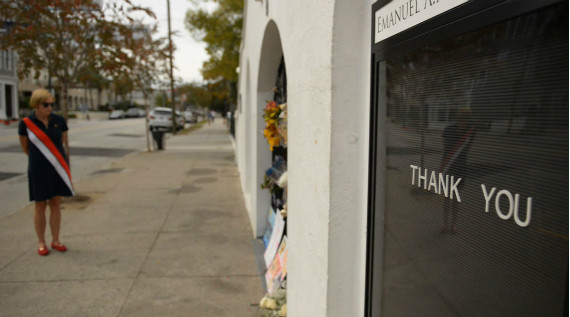
Still from AJ Schnack's SPEAKING IS DIFFICULT
Despite the outrage over racial exclusion in this year’s Oscar nominations and the Academy’s announcement that they will be swiftly enacting a whole host of changes to ensure greater diversity in the make-up of future votes, in the doc world, all eyes have been fixated on this year’s Sundance Film Festival in Park City, Utah. While Anthony Kaufman looked back at the films that had a lasting impact from last year’s fest in Filmmaker Magazine, everyone from Tom Roston to Christopher Campbell, through Kenneth Turan, Amy Taubin, Trevor Groth and Brooks Barnes have been listing their most anticipated films of the fest, each noting a variety of exciting docs on the horizon. At indieWIRE, Eric Kohn outlined why Sundance continues to be such an important beacon of cinema in a sea of international film festivals, while our own Thom Powers and Raphaela Neihausen spoke on WNYC this about why New Yorkers should care about the happenings in Park City this week.
Looking at the festival’s lineup as a whole, one will soon notice that this year’s hot button issue weaving throughout a whole host of films is that of domestic gun violence, and not the gratuitous action film type. Leading the conversation are non-fiction films like AJ Schnack’s SPEAKING IS DIFFICULT, Kim Snyder’s NEWTOWN, Stephanie Soechtig’s UNDER THE GUN and less directly, Robert Greene’s KATE PLAYS CHRISTINE. Writing for The Los Angeles Times, Steven Zeitchik explores the depths of this topical programming decision, noting, “When the Sundance Film Festival begins Thursday, it will do so with a rare accumulation of movies about the subject of gun safety. All of them hope to raise questions, if not provide solutions, in a place that has long been a ground zero for cultural movements.” Brooks Barnes of The New York Times awknowledged that “This year Sundance programmers, with deep commitment to freedom of expression, and their selected filmmakers seem to be taking a position that real guns, not the movie kind, ought to be more tightly policed.” Likewise at Nonfics, Christopher Campbell also took notice of the program, stating that “This time it’s about the issue of real gun violence in America — the problem with constant mass shootings and the debate over gun control and the 2nd Amendment.”
Back here at Stranger Than Fiction, we are ramping up for our 2016 Winter Season, which begins next Tuesday at the IFC Center with Craig Lowy’s high flying OXD: ONE EXTRAORDINARY DAY, about Elizabeth Streb’s Extreme Action Company and their attempt to perform on some of London’s most beloved landmarks. Season tickets, as well as individual tickets, are currently on sale. As an aside, I’d also like to point out that this week Thom Powers launched the online home of his soon to be released new documentary focused podcast, Pure Nonfiction.
Continue reading…
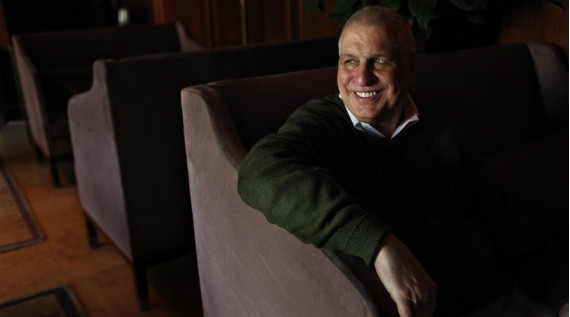
Errol Morris - Photo by Genaro Molina of Los Angeles Times
Tenacious in its attention grabbing fervor, the elation of Oscar night has been lingering in the air for much of the past week. Reflecting on CITIZENFOUR’s big win, Mark Olsen of the LA Times called attention to Neil Patrick Harris’s slight, yet pointed joke of ‘treason’ following Laura Poitras’s acceptance speech, while Tom Roston dissected the acceptance speech itself over at the POV Blog. At Indiewire, Nigel M. Smith listed 8 things he learned from the Oscar red-carpet, and Anne Thompson wrote up and extensive diagnosis of the evening’s events. Following the Oscar win, the CITIZENFOUR team – Laura Poitras, Glenn Greenwald and Edward Snowden – took part in a rather tense Reddit hosted Ask Me Anything session, which ended up garnering the attention of journalist like Will Oremus of Slate, Colin Gorenstein of Salon, and Thomas Halleck of International Business times, all of whom wrote pieces on the participatory event. In contrast, The Nation’s Ali Gharib simply wrote an elegant piece on the necessity of CITIZENFOUR’s Oscar win.
Tomorrow, another Oscar nominated film comes back into focus with Liz Garbus and Jonathan Stack’s THE FARM: ANGOLA, USA screening at the IFC Center as part of our ongoing Winter ’15 season of Stranger Than Fiction. In addition to garnering the attention of the Academy back in 1998, THE FARM also won 3 Primetime Emmy Awards, Best Documentary Film of 1998 from the National Society of Film Critics, the New York Film Critics Circle and the LA Critics Association, as well as the Grand Jury Prize at the Sundance Film Festival. Following tomorrow’s screening, directors Liz Garbus and Jonathan Stack will be on hand for a Q&A.
Continue reading…
